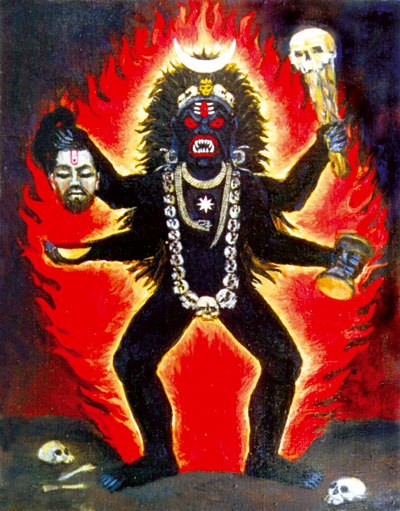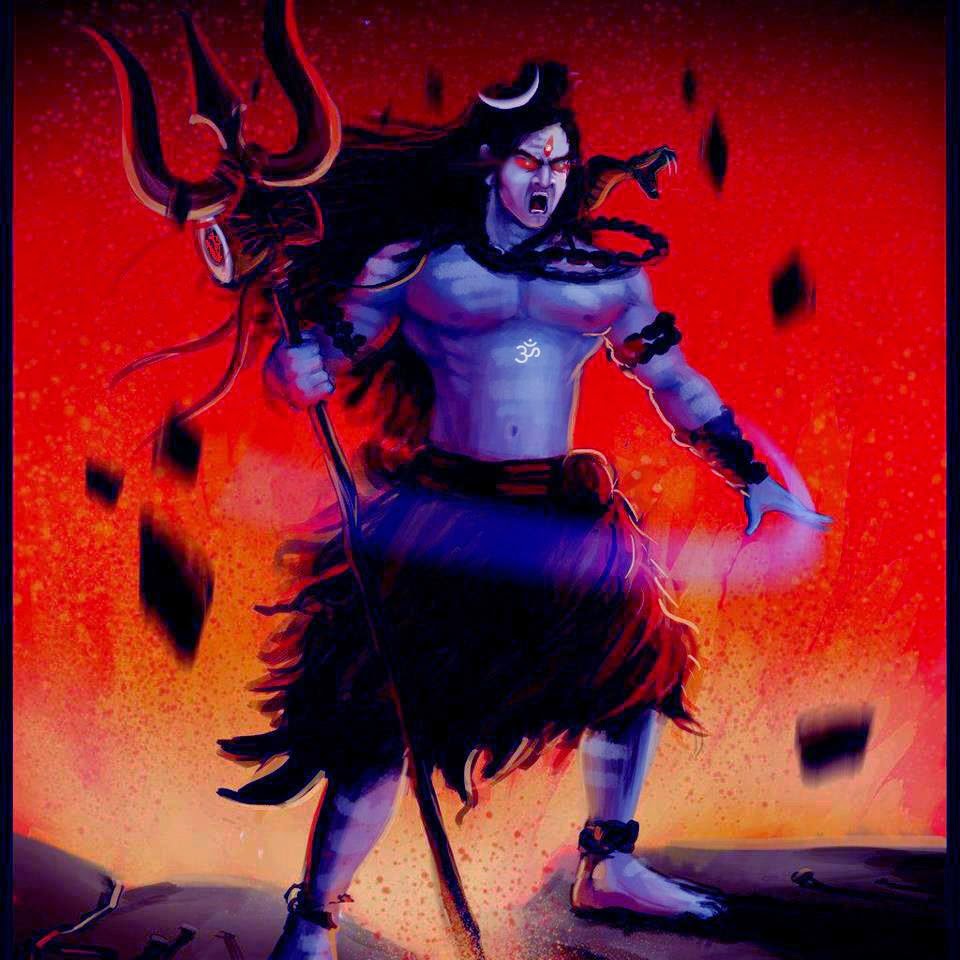Spirit_Warrior
Active Member
A few Christians believe that Shiva is actually Satan. Some of the reasons why they think he is Satan
1. The depictions of Shiva


2. The descriptions of Shiva as the destroyer god, the lord of serpents, the lord of darkness, as the terrible, fierce as one, and as the one that lives in graveyards
3. Shiva essentially represents the promise that Satan gave to Adam and Eve, that they too could become gods if they ate of the tree of knowledge. Shiva is a man that became the greatest of Gods through his pure efforts of meditation and penance.
4. Left hand path. The left path is associated with Shiva, the Naga sadhus, the Aghoris engage in extreme left hand practices which defy every taboo in mainstream Hinduism -- including meditating on dead corpses, eating human flesh, animal sacrifices(and some rare groups are known for human sacrifice too) indulging in intoxication and drugs, living in grave yards and fulfilling all your carnal desires.
I can sort of see why a Christian might think he is Satan. However, what do Satanists think?
1. The depictions of Shiva


2. The descriptions of Shiva as the destroyer god, the lord of serpents, the lord of darkness, as the terrible, fierce as one, and as the one that lives in graveyards
3. Shiva essentially represents the promise that Satan gave to Adam and Eve, that they too could become gods if they ate of the tree of knowledge. Shiva is a man that became the greatest of Gods through his pure efforts of meditation and penance.
4. Left hand path. The left path is associated with Shiva, the Naga sadhus, the Aghoris engage in extreme left hand practices which defy every taboo in mainstream Hinduism -- including meditating on dead corpses, eating human flesh, animal sacrifices(and some rare groups are known for human sacrifice too) indulging in intoxication and drugs, living in grave yards and fulfilling all your carnal desires.
I can sort of see why a Christian might think he is Satan. However, what do Satanists think?
Last edited:
